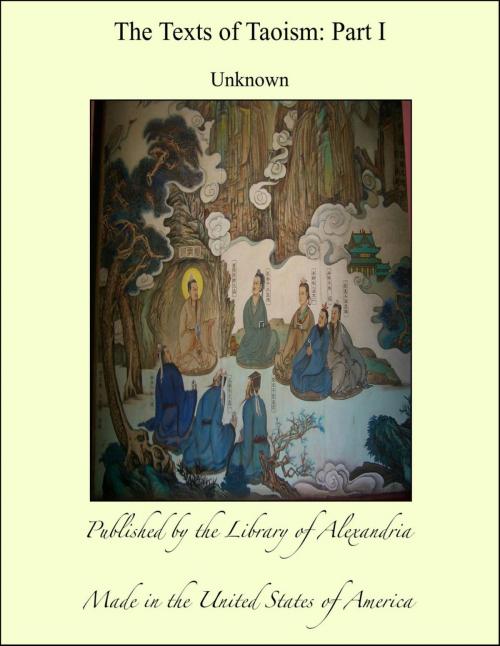The Texts of Taoism: Part I
Nonfiction, Religion & Spirituality, New Age, History, Fiction & Literature| Author: | Unknown | ISBN: | 9781465580528 |
| Publisher: | Library of Alexandria | Publication: | March 8, 2015 |
| Imprint: | Language: | English |
| Author: | Unknown |
| ISBN: | 9781465580528 |
| Publisher: | Library of Alexandria |
| Publication: | March 8, 2015 |
| Imprint: | |
| Language: | English |
On page 58, for the third and fourth sentences of the explanatory note to Chapter XIV, substitute the following:--It was but an interesting fancy of the ingenious writer, and the elaborate endeavour of Victor von Strauss to support it in 1870 has failed to make me think more favourably of it. Dr. Edkins, in an article in the China Review for July and August, 1884, takes a different view of the chapter. He reads the monosyllables Î, Hî, and Wei according to his view of the old names of the Chinese characters, and calls them Âi, Kâi, and Mâi, considering them to be representative of one or three names of God. He says:--'I am inclined to find here marks of the presence of Babylonian thought . . . . We have not the original words for the first trinity of the Babylonian religion. They are in the Assyrian or Semitic form Anu, Bel, Nuah. In Accadian they were Ilu, Enu, Hia. Of these Ilu was the supreme God, source of Chaos, in Chinese Hwun tun or Hwun lun. In this chaos all forms were confounded as is the case with the Tâoist chaos. Bel or Enu is the word which separates the elements of chaos. Nuah or Hia is the light of God which penetrates the universe, and maintains the order established by the word. It was this Trinity of God, in the language of some intermediate nation, which Lâo-tsze appears to have had in view in the various passages where he speaks of the original principle of the universe in a triple form.' This reading of our chapter is not more satisfactory to me than that of Rémusat; and I am content, in my interpretation of it, to abide by the aids of Chinese dictionaries and commentators of reputation who have made it their study.
On page 58, for the third and fourth sentences of the explanatory note to Chapter XIV, substitute the following:--It was but an interesting fancy of the ingenious writer, and the elaborate endeavour of Victor von Strauss to support it in 1870 has failed to make me think more favourably of it. Dr. Edkins, in an article in the China Review for July and August, 1884, takes a different view of the chapter. He reads the monosyllables Î, Hî, and Wei according to his view of the old names of the Chinese characters, and calls them Âi, Kâi, and Mâi, considering them to be representative of one or three names of God. He says:--'I am inclined to find here marks of the presence of Babylonian thought . . . . We have not the original words for the first trinity of the Babylonian religion. They are in the Assyrian or Semitic form Anu, Bel, Nuah. In Accadian they were Ilu, Enu, Hia. Of these Ilu was the supreme God, source of Chaos, in Chinese Hwun tun or Hwun lun. In this chaos all forms were confounded as is the case with the Tâoist chaos. Bel or Enu is the word which separates the elements of chaos. Nuah or Hia is the light of God which penetrates the universe, and maintains the order established by the word. It was this Trinity of God, in the language of some intermediate nation, which Lâo-tsze appears to have had in view in the various passages where he speaks of the original principle of the universe in a triple form.' This reading of our chapter is not more satisfactory to me than that of Rémusat; and I am content, in my interpretation of it, to abide by the aids of Chinese dictionaries and commentators of reputation who have made it their study.















